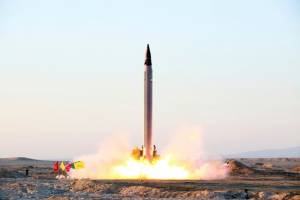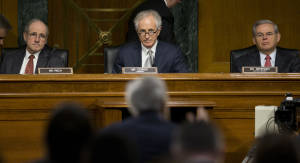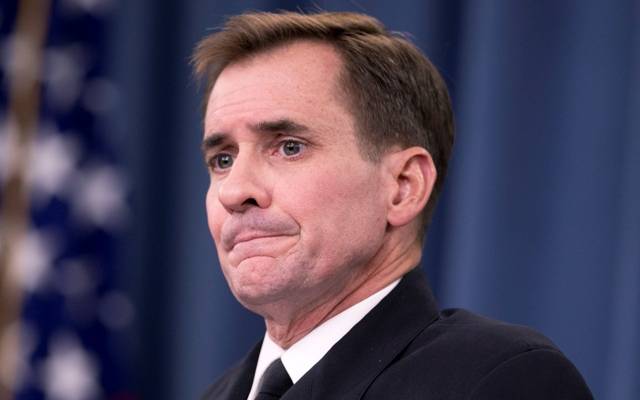
Iran’s October missile test. (Iranian Defense Ministry via AP)
Iran has twice violated UN Security Council resolutions when they conducted missiles tests. Iran knows it will meet no real response from the West and will continue with its belligerent actions, Senator Corker warns.
An unnamed US official conceded that Iran has again tested a new missile in November, the second such test since the signing of the nuclear agreement in July, which consists of a breach of UN Security Council (UNSC) resolutions.
The State Department said on Tuesday it was conducting a “serious review” of such reports.
The test occurred November 21, according to the official, coming after an October 10 test that Iran confirmed at the time. The official revealed that other undeclared tests occurred earlier than that, but declined to elaborate.
Ballistic missiles are especially sensitive with Iran because they could provide the delivery system for a nuclear warhead. As part of nuclear negotiations with world powers, Iran accepted an eight-year extension of a UN ban on its ballistic missile program, which they are apparently still vigorously developing.
According to the official, the US assesses that hardliners opposing the nuclear deal may be trying to provoke the United States into authorizing new sanctions against Iran and raising tensions between Washington and Tehran in an attempt to derail the deal. Top Iranian officials have vowed to respond to any new forms of economic pressure from the West.
US: ‘We’re Going to Take the Appropriate Actions’
State Department spokesman John Kirby refused to confirm the test.
“We’re conducting a serious review of this reported incident,” Kirby told reporters. He added, “If the reports are confirmed and if there is a violation of any relevant UN Security Council resolution, then we’re going to take the appropriate actions.”
He stressed that ballistic missile activity wasn’t a violation of the July deal that imposed more than a decade of restrictions on Iran’s nuclear program in exchange for hundreds of billions of dollars in potential relief from international sanctions. He said the US would monitor Tehran for “destabilizing” behavior, and that is “why we have a robust military presence in the region, and it’s why we still have and will remain capable of having unilateral sanctions.”
After the October test, President Barack Obama noted that Iran has often violated missile prohibitions. He said the US would make clear to Iran that there are costs for bad behavior, but stressed that the issue was separate from nuclear arms control.
On November 24, the US, Britain and France pressed Iran for a formal explanation for the October test at the United Nations. The UNSC is still debating how to respond to Iran’s October violation of it resolutions.

Senate Foreign Relations Committee, Chairman Sen. Bob Corker (C). (AP/Pablo Martinez Monsivais)
In Washington, the administration is still studying a possible response of its own.
Officials with knowledge of the process said the Iranian individuals and organizations involved with the test are already penalized under American sanctions law, and said the government was still identifying potential targets.
Senator Bob Corker, the chairman of the Senate Foreign Relations Committee, criticized the Obama administration’s lack of response to Iran’s “repeated ballistic missile tests.” Iran, he said Tuesday, “knows neither this administration nor the UN Security Council is likely to take any action.”
By: AP and United with Israel Staff
